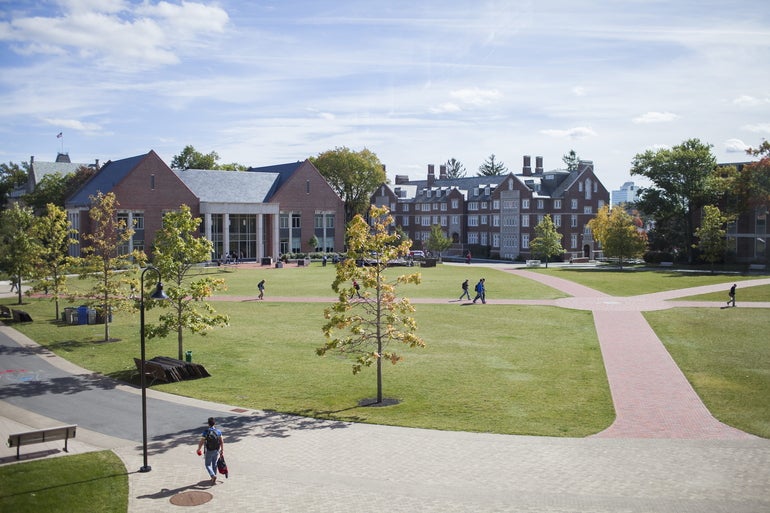Central Massachusetts colleges and universities are now in the process of navigating international students fears and bracing themselves for how those students’ absences could impact their economic standing.
Get Instant Access to This Article
Subscribe to Worcester Business Journal and get immediate access to all of our subscriber-only content and much more.
- Critical Central Massachusetts business news updated daily.
- Immediate access to all subscriber-only content on our website.
- Bi-weekly print or digital editions of our award-winning publication.
- Special bonus issues like the WBJ Book of Lists.
- Exclusive ticket prize draws for our in-person events.
Click here to purchase a paywall bypass link for this article.
The letter said everything.
In the afternoon of April 10, Clark University in Worcester published a message signed by its top three executives confirming 12 of its international students had been targeted by the President Donald Trump Administration and had their student visas revoked.
The letter, addressed to the Clark community, said the university had been blindsided by the revocations; was working with the impacted students to know their rights and continue their studies; was encouraging all international students to keep up with their documentation; had joined 85 other universities in a lawsuit challenging the revocation of student visas; and underscored to Sen. Elizabeth Warren (D-MA) the importance of international students.

“To all who have come to Clark from around the world – students, faculty, and staff – know that you are welcome and appreciated, and that we are here to support you,” said the letter signed by President David Fithian, Provost John Magee, and John LaBrie, dean of graduate studies and international programs.
The message from Clark, where 35% of the student body is international students, followed a similar one issued by Worcester Polytechnic Institute Grace Wang earlier that morning, after WPI discovered four of its students had their visas revoked.
While the Clark and WPI letters were designed to assuage fears and offer support in troubling times, they both accentuated the importance of international students to the economics of colleges and universities, as well as broader communities like Worcester, which has about 3,000 international students at its four-year universities. Even though they make up a relatively small portion of student bodies, international students typically pay disproportionately higher tuition and have helped fill gaps in declining enrollment among U.S. high school graduates.
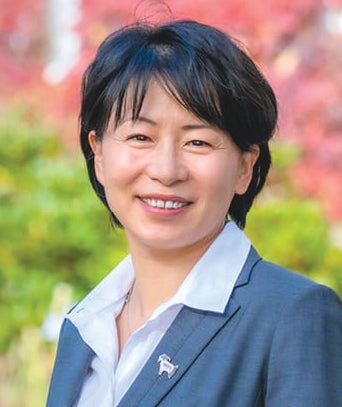
“I know from my own experience the transformative power of international study. WPI has long provided a welcoming academic home for students and scholars from around the world. Their perspectives make WPI a more connected, more creative, and more intellectually rigorous university,” Wang wrote in her April 10 letter.
Yet, the Trump Administration’s actions likely will have short- and long-term impacts on international students wanting to study in the United States, said Angel Pérez, CEO of the National Association for College Admission Counseling, based in Virginia.
“High school counselors across the world are saying to me that their students have never been more afraid to enroll at an American institution,” Pérez said. “What we're going to start seeing is a brain drain in America, and that is devastating for our future.”
The importance of international students
Central Massachusetts colleges and universities are now in the process of not only navigating international students fears, but bracing themselves for just how much those students’ absences could impact their economic standing, said Chelsie Vokes, associate attorney at Worcester law firm Bowditch & Dewey, who serves as outside general and employment counsel for a number of Massachusetts schools.
Because most foreign citizens are ineligible for federal or state financial aid, they often pay full tuition for enrollment at U.S. schools, allowing for discounted cost-of-study for their U.S.-citizen counterparts.
For example, Clark University charges an annual tuition of $59,680 before fees and other costs like room and board. International students end up paying close to 100% of that cost, but other students receive an average financial aid package of $44,951.
And 70% of first-year Clark students receive some degree of need-based financial aid.

“In some respects, the international community is subsidizing the scholarships and the reduction in tuition that domestic students are experiencing,” said Vokes.
A decline in the number of international students won’t result in a higher number of U.S. students going to these schools, said Vokes.
“It doesn't really work like that,” she said. “A lot of schools are already fighting over the relatively small pool [of U.S. students], and it's only decreasing because we're seeing that drop off in enrollment that many schools have been anticipating for a number of years.”
Worcester is home to around 3,000 international students, with WPI and Clark leading the way.
International students make up 35% of Clark students and 15% of WPI’s students. UMass Chan Medical School, College of the Holy Cross, and Worcester State University all have at least 117 international students each, ranging from 2% to 8% of their student bodies.
“Just a couple of weeks ago, we came together for Gala, a beautiful celebration of the deep connection we have at Clark with our international students and how, through our individual uniqueness, we are stronger and better as a community. One community,” Clark’s executives wrote in their April 10 letter.
In the 2023-2024 academic year, international students contributed contributed $413.5 million to the economy and supported 3,845 jobs in the Massachusetts 2nd Congressional District, which encompasses most of Worcester County, according to an analysis performed by Washington D.C.-based NAFSA: Association of International Educators in partnership with Indiana tech company JB International.
That’s part of the $3.9-billion economic impact and 35,849 supported jobs by international students in Massachusetts, according to NAFSA.
Since the Trump Administration is also revoking visas for documented employees, that might further dampen international students’ desires to come to the U.S., said Vokes.
“If the likelihood of them getting a job post graduation is less likely, they may not want to invest the time and energy and the money into forging those connections and studying within the U.S.,” said Vokes.
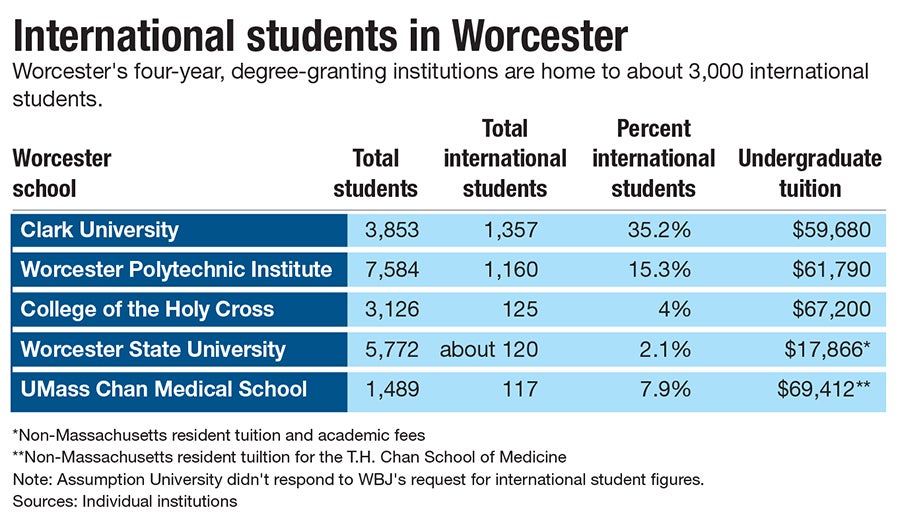
Sewing fear and uncertainty
The Trump Administration’s actions are creating fears among international students ranging from their studies being interrupted to not being able to return after a summer break, with even more dire concerns stemming from incidents such the highly-publicized arrest and detainment of Rumeysa Ozturk, an international student at Tufts University in Medford.
“In this climate of uncertainty, I want to assure WPI’s international students, staff, and faculty: You are welcome here. You belong here. WPI is here to support you,” Wang wrote in her April 10 letter.
In many cases, the Trump Administration is wrongfully targeting individuals in an attempt to scare others, often claiming alleged foreign national security or foreign policy issues, said Richard Iandoli, partner at Boston immigration law firm Iandoli Desai & Cronin.
While cancelling visas does make international students deportable, it does not mean they can’t continue studying in the country nor does it warrant arrest or detainment, especially without due process, Iandoli said.
Instead of issuing students with a notice to appear in front of an immigration judge, the administration is going into the Student and Exchange Visitor Program system and terminating the student visas, a move immigration lawyers are saying is outside of the administration’s jurisdiction.
“What they're hoping is that people will self-deport,” said Iandoli.
When WBJ asked the U.S. Department of State about the revocation of the four WPI student visas, it said it couldn’t comment on individual cases but the overall visa review is part of Trump’s approach to national security.
“When considering revocations, the department looks at information that arises after the visa was issued that may indicate a potential visa ineligibility under U.S. immigration laws, pose a threat to public safety, or other situations where revocation is warranted. This can include everything from arrests, criminal convictions, and engaging in conduct that is inconsistent with the visa classification, to an overstay,” the State Department wrote to WBJ. “The Department of State will continue to work closely with the Department of Homeland Security to enforce zero tolerance for aliens in the United States who violate U.S. laws, threaten public safety, or in other situations where warranted.”
WPI, Clark, Holy Cross, Assumption University, and UMass Chan all declined to make officials available for interviews for this story.
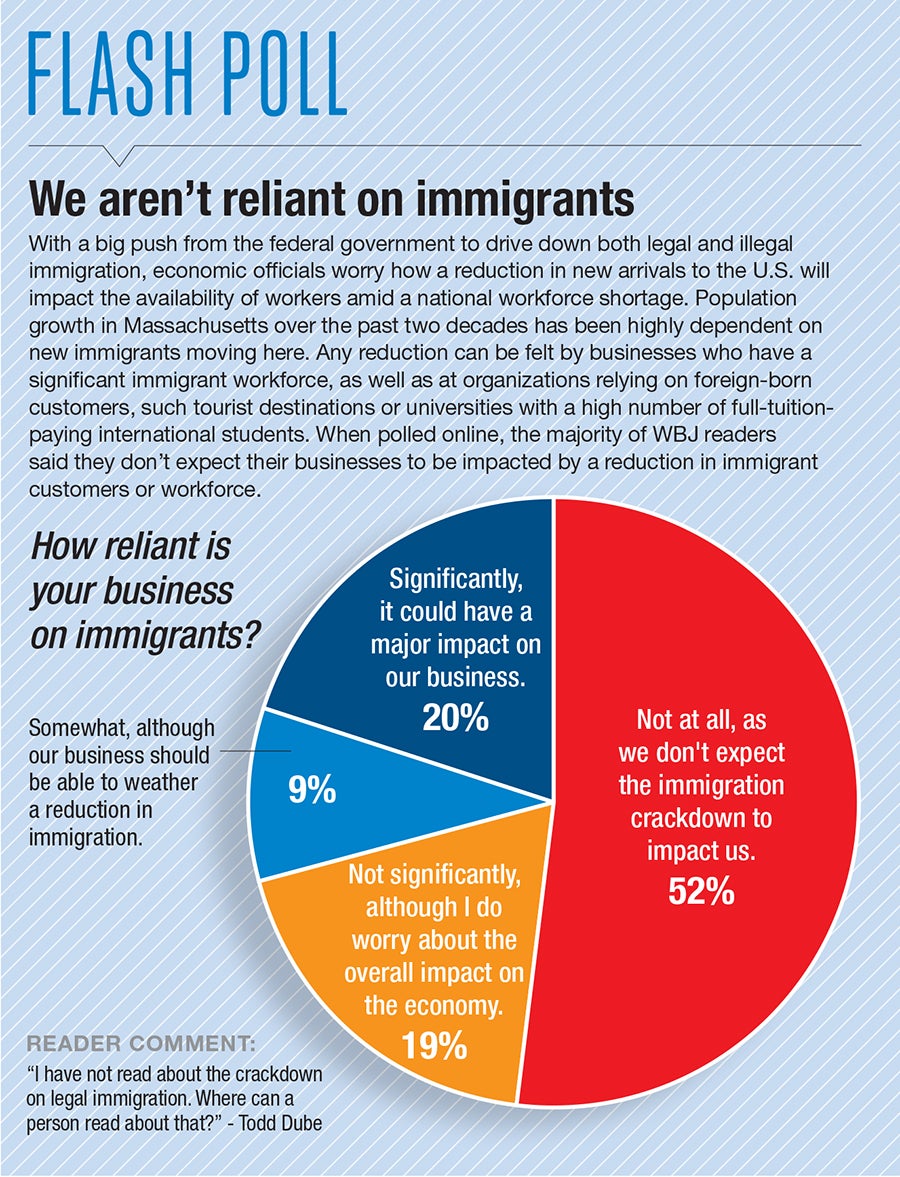
Ripple effects
A decline in the country’s international student population is very much anticipated by industry leaders, said Pérez.
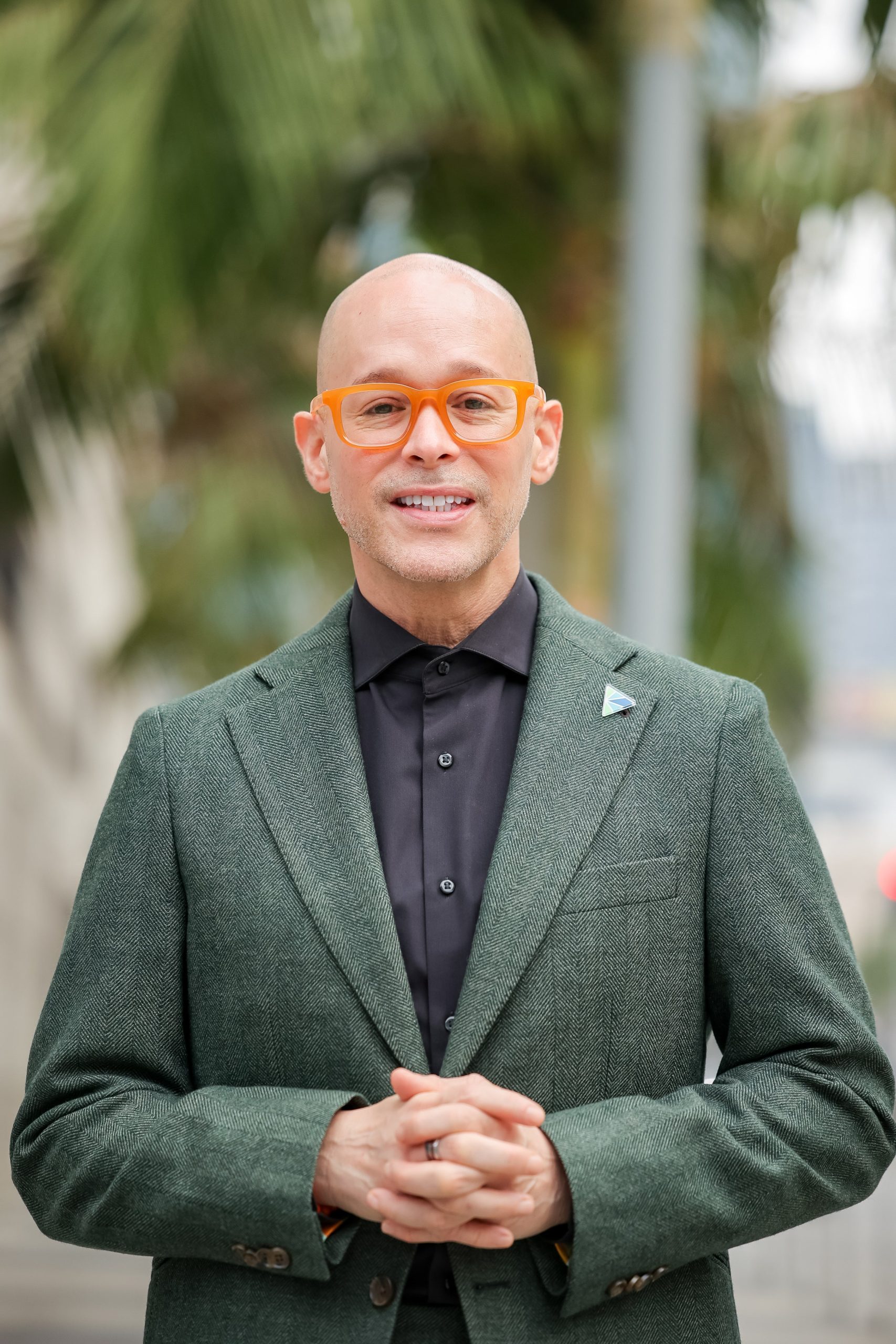
U.S. schools will lose out on the rich diversity of international students bring to campus life while their economic structure will take a massive hit, he said. Each school allocates a portion of its enrollment- and tuition-based revenue to the income generated by international students.
The administration’s new policy enforcement could not be coming at a worse time, as colleges and universities within the state and country are facing a collective decline in enrollment over the past few years.
Additionally, the Trump Administration’s attempts to cut National Institutes of Health funding to universities and research institutions only compounds concerns, said Vokes.
UMass Chan, for example, is expecting to lose $80 million in annual revenue from the NIH funding cuts and has already implemented a hiring freeze and planned layoffs.
While the destructive effects of a reduced international student body can’t be underestimated for colleges and universities, the repercussions of their loss will undoubtedly also bleed out into local communities and economies, said Pérez.
“Communities are devastated when colleges don't do well,” said Pérez. “Everyone should care about the fact that higher education is currently under attack, not just people with children going to college.”
Cities and towns deeply rely on the colleges and universities within them, he said, using the example of Green Mountain College. The 185-year-old Vermont school closed in May of 2019, leaving the small town of Poultney without its largest employer. By December of that year, nearly all of the school’s former professors had gained employment elsewhere and relocated while property values took a nosedive, according to a report by Boston news agency GBH.
The loss of international students in Central Massachusetts could have long-term ramifications for the workforce, especially since a high number of them are studying STEM-related fields, Vokes said.
In fact, 56% of international students pursued STEM fields of study in academic year 2023-2024, according to the Institute of International Education.
Crucial industries like health care already struggling to hire and retain employees will suffer setbacks if the country loses international students, said Vokes. Simply put, fewer professionals with post-secondary degrees means fewer people available to fill degree-mandatory positions.
By 2031, 72% of jobs will require postsecondary education or training, including 95% of total job openings in STEM and social services; education; healthcare professional and technical; community services and arts; and managerial and professional offices requiring at least some postsecondary education, according to report by Georgetown University in Washington, D.C.
“The past week has been an especially unsettling one for our international students, with the federal government’s unprecedented process of revoking student visas. Unfortunately, we expect this will continue,” wrote the Clark executives in their letter.
Mica Kanner-Mascolo is a staff writer at Worcester Business Journal, who primarily covers the healthcare and diversity, equity, and inclusion industries.
